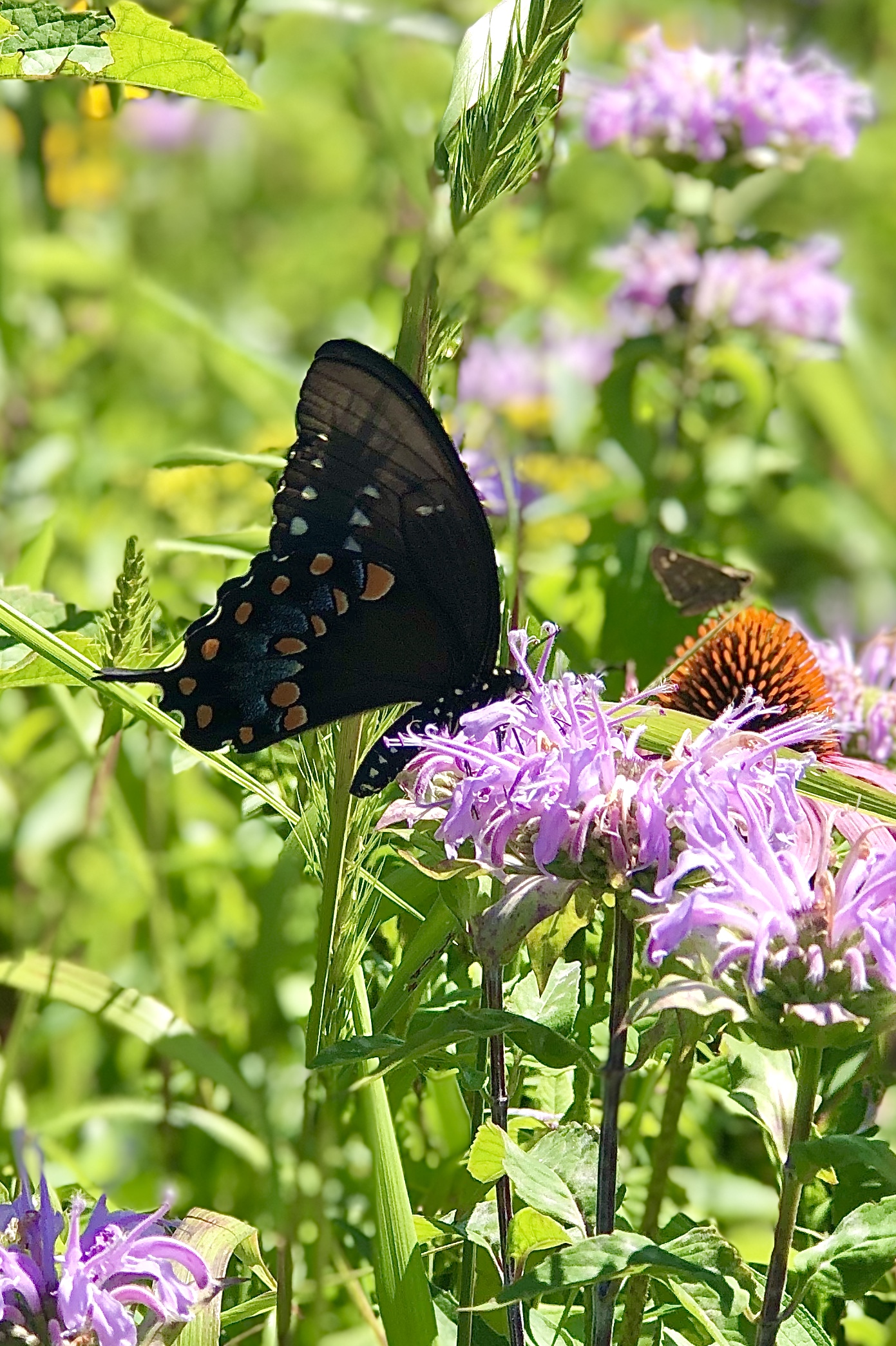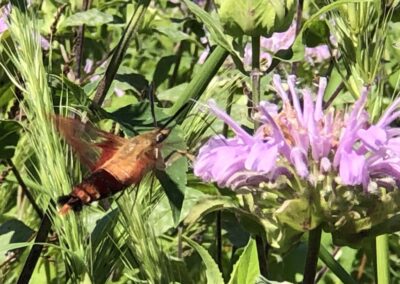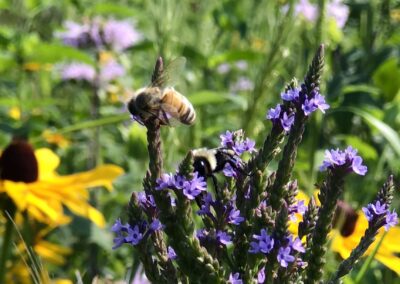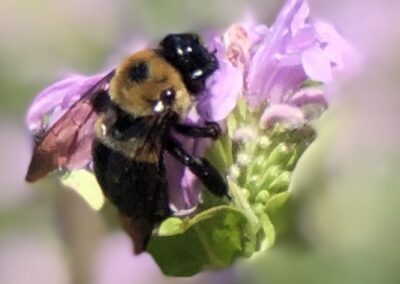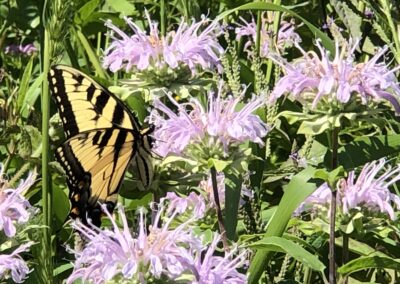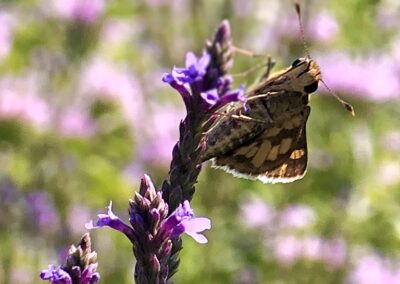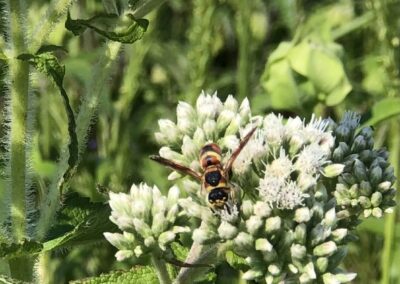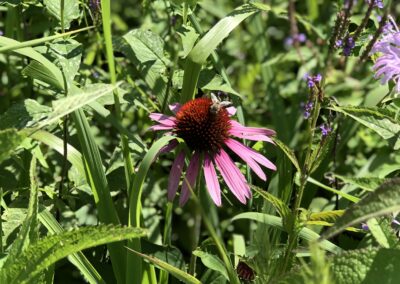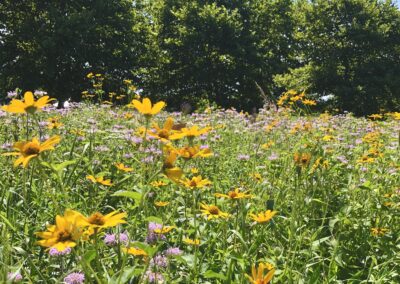Native Pollinator Garden
Established in partnership with the University of Maryland Pollinator Meadow Initiative, this garden is planted with a mix of native wildflowers and grasses that attract a wide variety of pollinators such as butterflies, bees, moths, beetles, flies and birds. Pollinators are essential for the health of our planet. They carry pollen grains from one flower to another for fertilization. Without pollinators, many plants are unable to produce the fruit and seeds that provide food for animals (including us!). In fact, approximately 30% of all the food we eat depends on pollinators.
Native pollinators are species that have naturally occurred in a region, or migrated there without any human influence. More than 250,000 wild plants have evolved specifically to be pollinated by native pollinators. Native pollinators that have been seen in this garden include various species of solitary bees (bees that do not form hives), butterflies (e.g., monarchs, swallowtails, fritillaries, hairstreaks, whites and sulphurs), skippers (e.g., silver-spotted, tawney-edged and Peck’s), moths (such as the spectacular snowberry clearwing that looks like a hummingbird!) and all manner of beetles and hoverflies (look out for the beautiful eastern calligrapher). There are also stunning dragonflies and damselflies that skim over the surface; they are not pollinators but are an important part of the ecosystem.
Sadly, many of these species are endangered. Toxic pesticides, agricultural monocropping, the loss of habitat due to suburban sprawl and industrial development, and misinformed home gardening practices have all led to the dramatic decline of native pollinators.
But we can all do something to help native pollinators thrive! Here are three simple ways:
1) Plant diverse, native flowering plants such as the ones that are growing here: various kinds of goldenrod, milkweed, aster, coneflower and bee balm, as well as black eyed susans.
2) Avoid using chemicals on your lawn and garden.
3) Buy local, organic food from small family farms, when possible.
